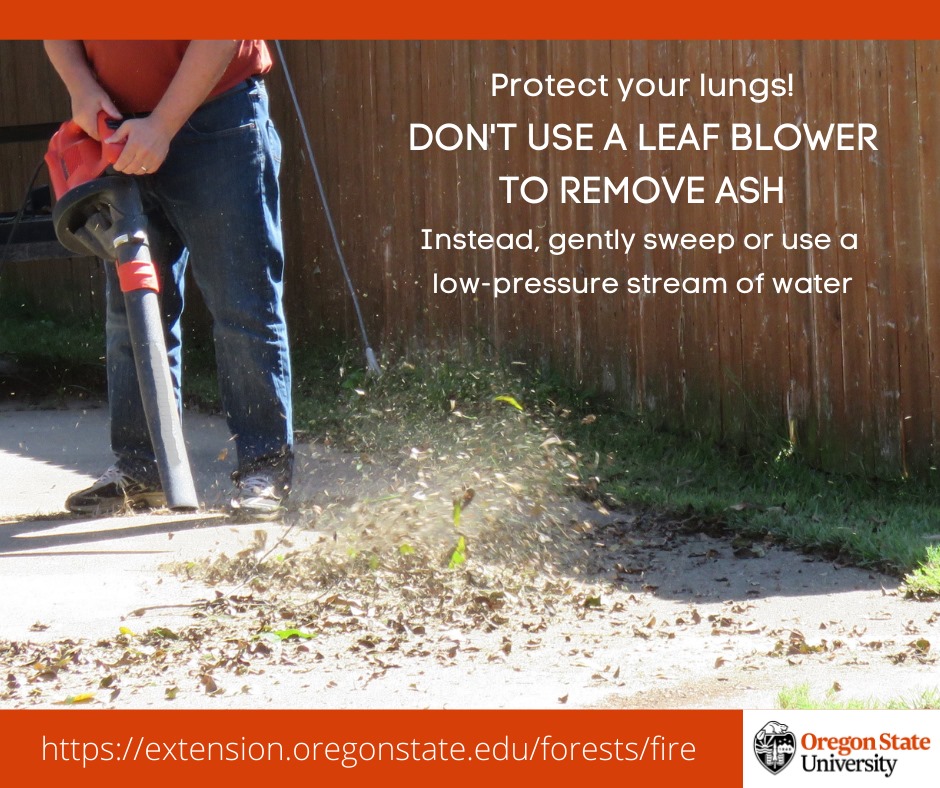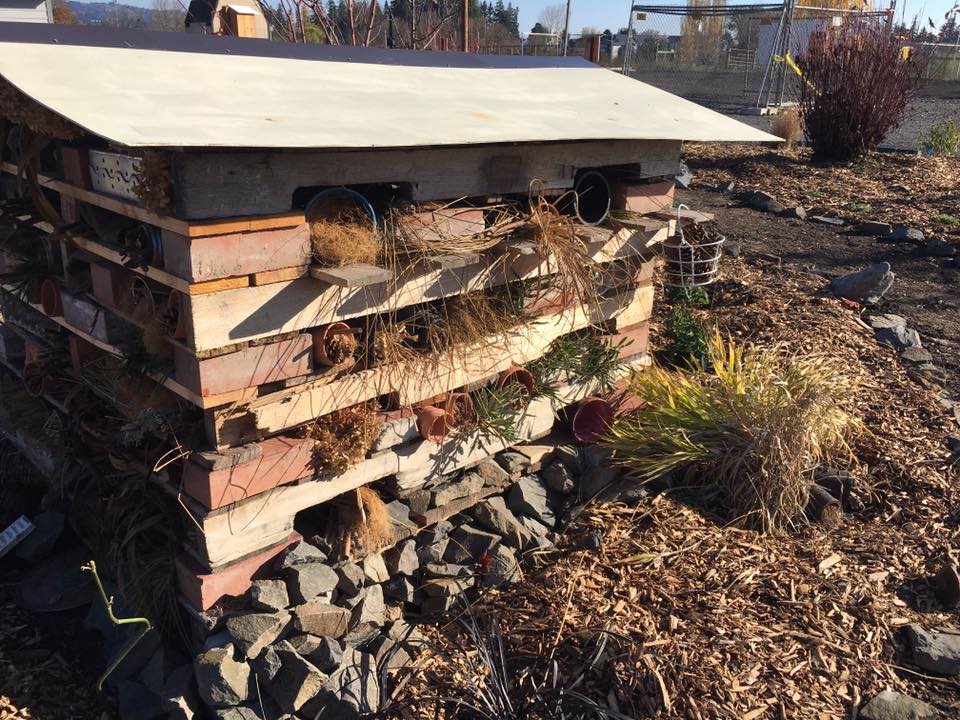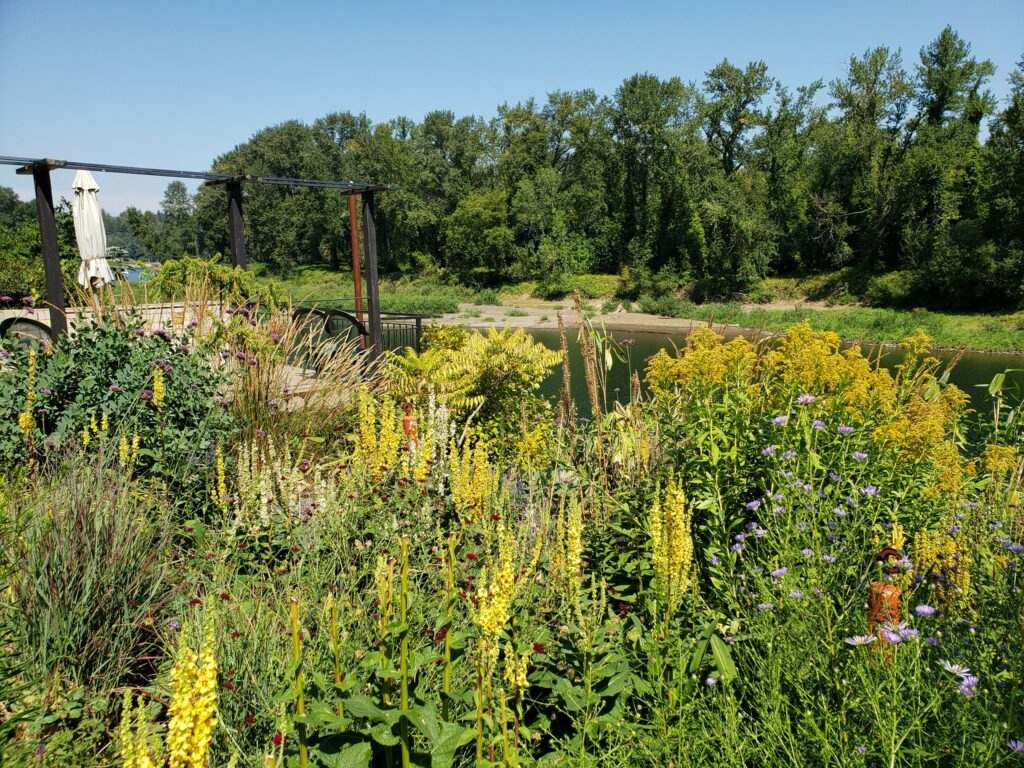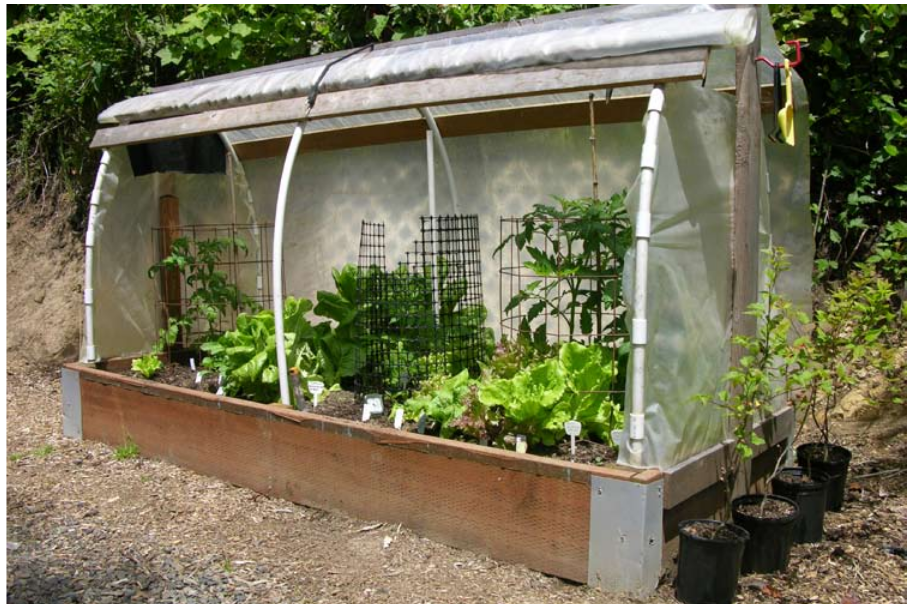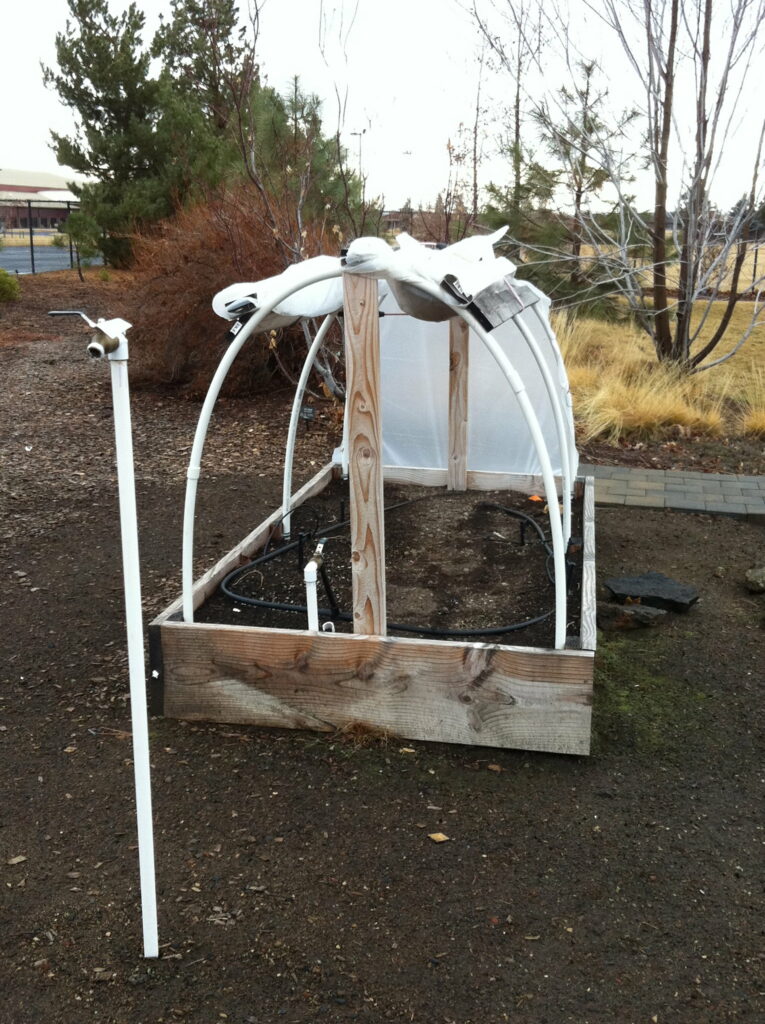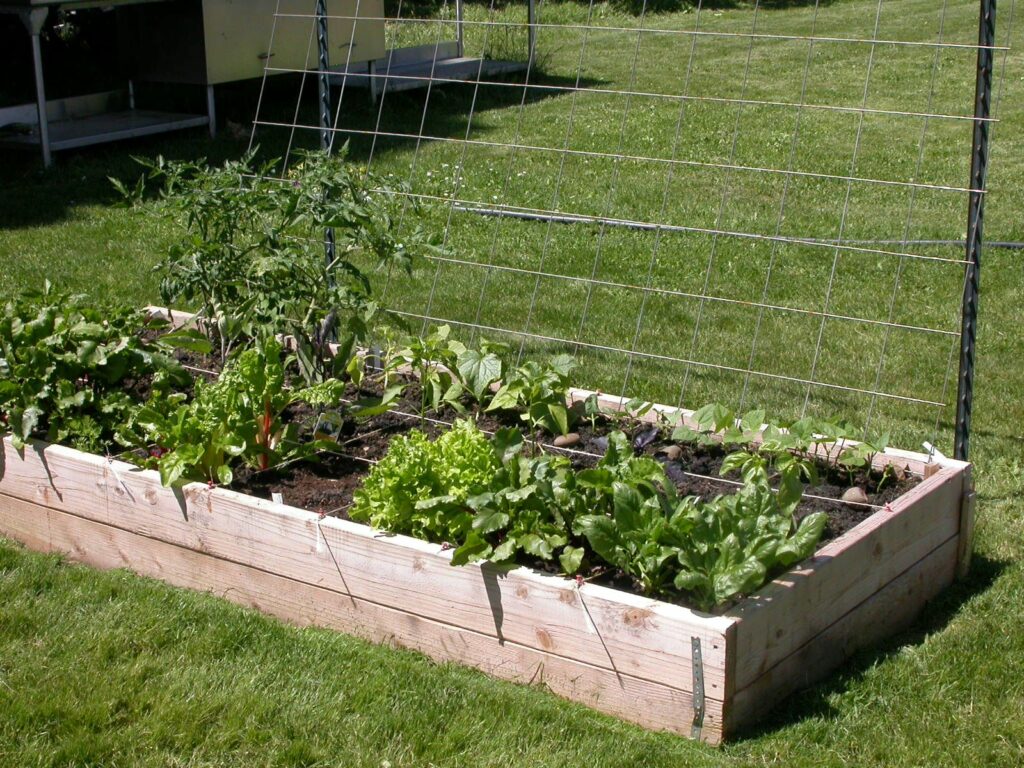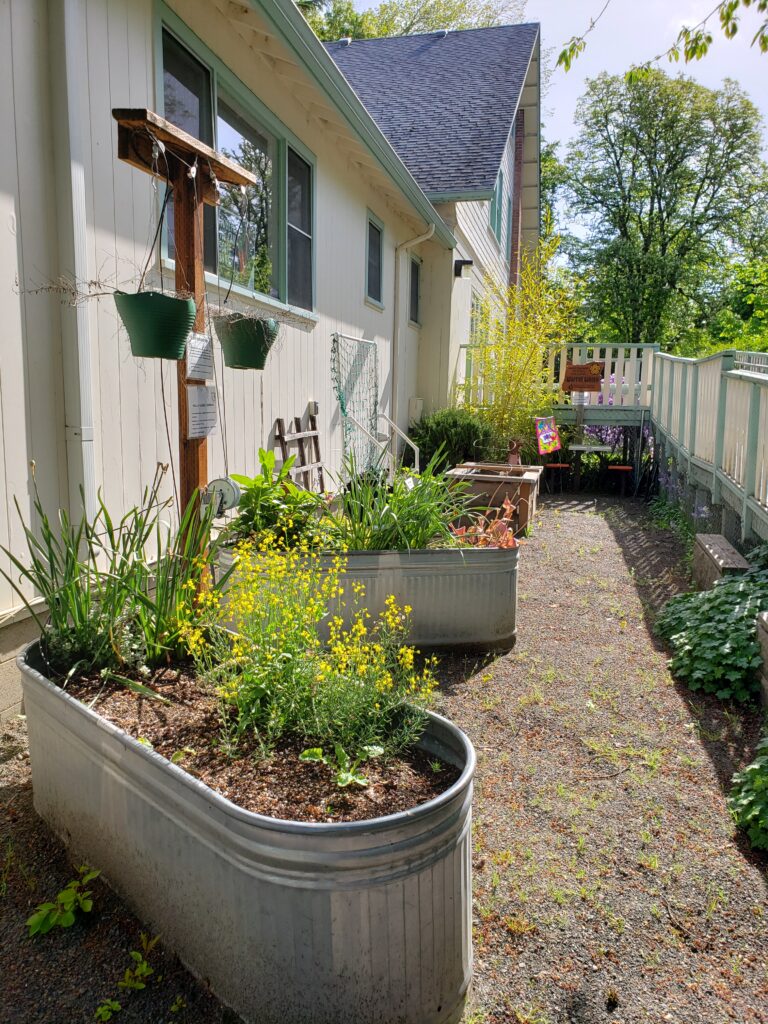At this time, when many Oregon counties are in the ‘Extreme Risk’ of COVID transmission category, there are limited opportunities for Master Gardener volunteerism. And, until we return to ‘normal’, we can expect that OSU Extension will require approval for in-person programming and employee travel. The current guidance that we are operating under can be found in the PDF, below.

During this time of COVID restrictions, Master Gardener volunteers have continued to serve their communities by writing social media posts (gardening tips of the week), participating in virtual plant clinic, or approved work in demonstration of community gardens. Given the limited selection of approved volunteer activities at this time, I am pleased to announce that there are two new options available for Master Gardener volunteer service. Both of these projects are eligible for volunteer service hour credit.
1) Diversity, Equity, and Inclusion Learning Community and Task Force
Are you interested in participating in a statewide Diversity, Equity, and Inclusion (DEI )workgroup? We are exploring the formation of a statewide DEI workgroup that would include OSU Extension Master Gardener staff and volunteers.
For the past 8 months, a small group of Master Gardener program staff have been meeting to establish priorities and to work on creating a more equitable and inclusive program. We’d like to grow this group to include volunteers, and to create a learning community and work group dedicated to DEI. Are you interested in participating? We’d love to hear from you.
- A learning community and working group to focus on needs and priorities for diversity, equity and inclusion in the OSU Extension Master Gardener program
- Estimated time commitment is 5 hours/month. Statewide working group to meet monthly, subteams to meet 1-2 times a month for specific focused work. Hours count towards MG volunteer hours.
- Apply before February 12th. We hope to have the first meeting in April.
- Apply here before February 12th: https://oregonstate.qualtrics.com/jfe/form/SV_41JSg3HIvsAFUwt
Grow This! Oregon Garden Challenge
Food Hero and Master Gardeners are collaborating on the 2021 Grow This! Oregon Garden Challenge. The second year of the Grow This! Oregon Garden Challenge, is much bigger than last year’s Challenge! This year we are looking to sign up 8,000 gardeners to grow vegetable and flowers and need your help!
We need your help to grow along and share your expert advice with these gardeners. Please consider signing up to participate as a Grow This! Champion. Your growing tips, comments, challenges and stories will be shared on our social media platforms and in monthly update emails to beginning gardeners as a way to build a growing community across the state.
Master Gardener volunteers are invited to participate, and apply to be a Grow This! Champion.
A Grow This! Champion:
- Must be a current Oregon Master Gardener volunteer or Master
Gardeners representing a county demonstration/educational garden. - Will need to apply for the Grow This! Champion program by midnight
February 19 (we are looking to include Master Gardeners from across
the state and may need to limit participation if demand exceeds our
seed supply). - Will receive one crop seed packet and one flower seed packet.
(Type and variety will be selected at random.) Pick up will be at your
county in March (specifics will be sent by email) - Must agree to give feedback on your growing process and results
at least once—but as often as you want—during the Challenge.
Feedback could include suggestions, comments, challenges and
solutions, stories, photos, drawings or videos that we can share
with others (with or without your name). These can be emailed to
food.hero@oregonstate.edu or shared on social media adding the
following text to any post: @BeAFoodHero and #mastergardener.
All feedback is WELCOME. - Can count your active time spent on this project as Master Gardener
volunteer hours (report as ‘community science’)
Questions?
Email Brooke.Edmunds AT oregonstate.edu or food.hero AT oregonstate.edu or leave a voice message at 541-737-1017.
Learn more about the challenge here: https://www.foodhero.org/growthis. You can also download the flier in the file, below, to share with other Master Gardener volunteers who might be interested in participating.








